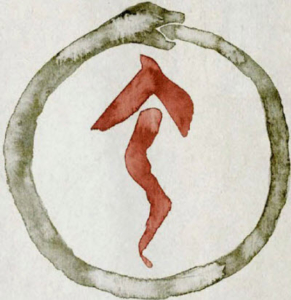 A month ago, The New Yorker published “Easy Writers: Guilty Pleasures Without Guilt,” in which Alfred Krystal examines the pleasure of reading so-called guilty pleasures and the stigma against genre fiction. On one hand, this article was a snoozefest: old arguments, old anecdotes, and old ideas rewritten and presented as if they were new. Michèle Bernstein says it best with a glib, passive-aggressive dig at Surrealists in her autofiction novel All The King’s Horses: “His friends paraded out — in the usual order — all the ideas from thirty years ago, which was amusing.”
A month ago, The New Yorker published “Easy Writers: Guilty Pleasures Without Guilt,” in which Alfred Krystal examines the pleasure of reading so-called guilty pleasures and the stigma against genre fiction. On one hand, this article was a snoozefest: old arguments, old anecdotes, and old ideas rewritten and presented as if they were new. Michèle Bernstein says it best with a glib, passive-aggressive dig at Surrealists in her autofiction novel All The King’s Horses: “His friends paraded out — in the usual order — all the ideas from thirty years ago, which was amusing.”
On the other hand, the article riled me up. The argument might be dull and old, but it is one I respond to every time someone presents it. I don’t believe in guilty pleasures. (If a person feels guilty about what he or she likes, I tend to question the person rather than the thing.) I don’t believe in the validity of the hierarchical categories that helped establish the concept of the guilty pleasure, categories like “highbrow” and “lowbrow.” Luckily, I’m not the only one who cannot give up on this argument. Urusala K. Le Guin can’t shut up about it either:
Literature is the extent of the body of written art. All novels belong to it . . . Every readable novel can give true pleasure. Every novel read by choice is read because it gives true pleasure . . . Genres exist, forms and types and kinds of fiction exist and need to be understood: but no genre is inherently, categorically superior or inferior. This makes the Puritan snobbery of “higher” and “lower” pleasures irrelevant, and very hard to defend.
The quote comes from an article called “Le Guin’s Hypothesis,” published in response to Krystal’s piece at Book View Café. Le Guin has probably has more experience fighting this fight than anyone; her writings on her frustration with Margaret Atwood’s rejection of the label science fiction inspired Atwood to write a whole book as a rebuttal, redefining the terms science fiction and fantasy to better suit her needs. Before Le Guin chimed in, Lev Grossman, author of The Magicians and The Magician King, published his own response to Krystal. Grossman was a bit more politic.
Nevertheless, reading both Grossman’s “Literary Revolution in the Supermarket Aisle: Genre Fiction Is Disruptive Technology” and Le Guin’s piece was satisfying in a deep-stomach, visceral way. They captured my own reaction to Krystal’s treatise, articulating my ideas and emotions better than I could. When you feel something, you like to look around to make sure you’re not alone; finding out there is someone there with you can be the most exquisite relief. But sometimes consuming the same argument over and over again is like a snake eating its own tail. Sometimes it’s like eating too much foie gras or cashew cheese; a too-rich meal upsets the stomach. Nausea follows, and the fault is both mine, for over-imbibing, and the restaurant’s, for serving such a large portion.
But is there still value in having the same arguments over and over? I’m happy Le Guin was inspired to respond to Krystal because she clearly and cleanly articulated ideas I think I’ll end up referring to often. On the other hand, the whole mess is starting to leave me a little exhausted. I want the other side to roll over and admit defeat already so we can live in a post-brow world. Again, Le Guin says it better than I:
I don’t want to join the group still huddled together in a corner of a twentieth-century lunchroom smirking over a copy of Amazing Wonder Tales because it’s “bad,” and flipping off the stuffy teacher who wants us to read A Tale of Two Cities because it’s “good.” I don’t want to be there any more.
But as much as we don’t want to be there, here we are. What should we do until we get to a better place? Keep reposting links to old articles until the world catches up? Nap? Or keep the shouting match going?
This post may contain affiliate links.








